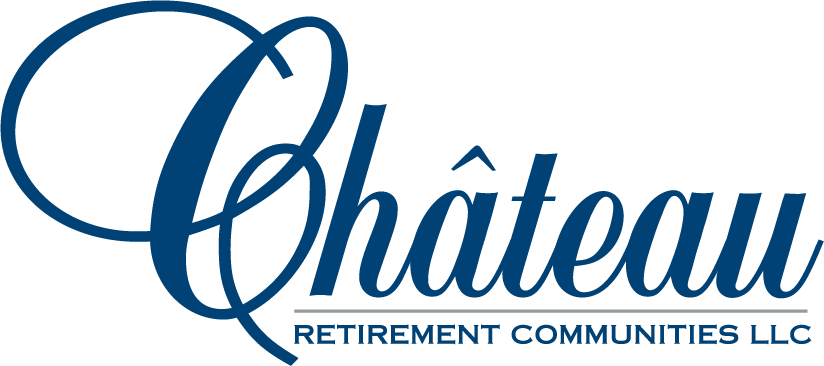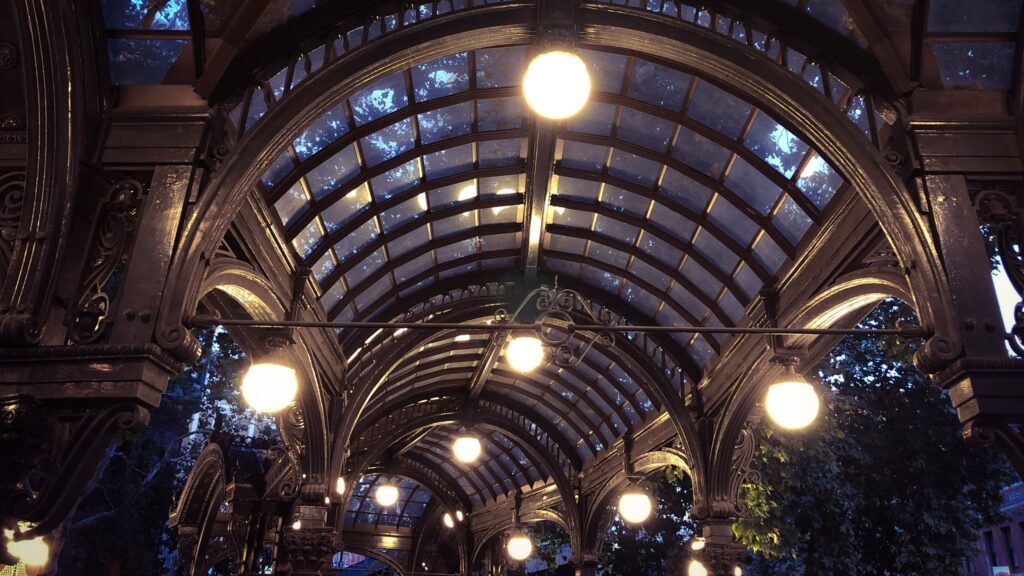[vc_row][vc_column][vc_column_text]Chateau Retirement’s “Reflections” series highlights the rich life experiences of our residents. This month, Sue Calvin tells a story of growing up in a bustling Seattle.
When my father was five years old, he came with my grandmother and his brother, my uncle to live in Seattle in 1900. My grandmother was a hardworking single mother who had a job cooking in a gold mining camp waiting for her in Alaska. The three of them lived in an apartment in Madison Park, across from Horace Mann school.
In those days when you rented an apartment, you had to buy the furniture in the apartment, a custom used to keep people from skipping town without paying their rent. A couple weeks after moving in, my uncle who was two and a half years older than my dad, went off with my father to play in a field close by. My grandmother, suddenly aware she had not seen them for a while, and curious as to where her two young boys might be, went looking for them. My father had fallen down a set of stairs and was lying on the ground.
There were no phones, but my grandmother finally found a doctor who diagnosed him with a fractured hip. At the end of the appointment, the doctor announced he was leaving for Alaska the next morning and my grandmother would need to find another doctor. By the time she found another doctor, enough time had lapsed that my father developed an osteomyelitis infection in the bone. Furthermore, the bone was not set correctly, and he remained in the hospital till he was twelve.
The nuns in the hospital, recognizing that an education was still very much a part of his world, schooled him while he was hospitalized. When he was finally released and ready to enter school, the school enrolled him in the 3rd grade. My father, who was unable to walk properly and was physically limited by what he could do compared to other boys his age, had red hair and was bigger than the other kids in the 3rd grade.
He used a crutch due to the one leg being thirteen inches shorter than the other leg. He was bullied by the other boys who called him “Tiny Tim” or “crip”, a painful reminder that he looked different than his buddies. Recognizing all my father had been through and the education he had received from the nuns, my grandmother was eager to have him placed in the appropriate grade for his ability and went about challenging the decision to put him in the 3rd grade. He was tested and following the results, was transferred to the 6th grade.
Madison Park is close to the water and after searching the beach for my father one day and not finding him, my grandmother quizzed the children playing as to where he might be. They said, “He’s right out there”, pointing in the direction of the water. It turned out that one of the boys had told him he couldn’t swim to Kirkland and wanting to prove the boy wrong, my father swam to Kirkland.
My grandmother had remarried and they were living at 23rd and Union. Due to my father’s disability, it was difficult for him to walk up the Seattle hills and often the beer cart would stop and pick him up. When the horses got tired, the cart would stop to let them rest. Noticing the stopped cart, children walking along the street ran to catch up with the cart before it started moving and my father would throw them a beer.
My father tested out of many high school classes and didn’t spend a full four years in high school, graduating when he was just sixteen. During high school, my father was fitted with a special shoe that he wore within a normal shoe which compensated for his one leg being thirteen inches shorter than the other one. He went on to be the first male to graduate from Griffin Murphy Business College.
My grandfather had the first food cart with wheels in the area and it became part of a business idea he had for he and my grandmother. Pioneer Square was a flourishing business center in Seattle and workers needed to eat. He convinced my grandmother to cook meals, that my grandfather then loaded onto the food cart and headed to Pioneer Square where workers came to the cart and purchased meals.
In this thriving business environment, Princess Angeline, daughter of Indian Chief Stealth, was often seen in the area, sitting on the ground weaving cedar bark baskets. The food cart business only lasted one year before it was shut down due to a lack of hot water on the cart.
When my mother was pregnant with my brother Buck (real name Charlie), my brother Ernest died at the age of eighteen months. Buck was “Lord of the Manor”, till I came along and then I was the princess. There were some “givens” living with Buck, one of them was I would always get the short end of the stick or the smaller piece of pie.
My parents moved in with my grandparents till I was three, the depression had just ended, and my parents wanted their own home. My father was paid in coal during the depression and my mother had a small alterations business. One day my father came home and said to my mother, “Do you have any egg money?” Egg money was really alterations money. She had $49.50 in her egg money. In his search for a house, he had found one for $50.00. We moved into the house in 1938. The previous owner had lost it during the depression and it was covered in tar paper.
We spent weekends fixing it up, my father making sure we had the money before starting a project. The house renovation took three years, upon which we abandoned the outhouse, for a bathroom complete with a tub and a toilet. My mom had always bathed us in the sink but when she got sick, my god mother came to help care for us and promptly wanted to bathe us in the tub. I was having none of it because the sink is where we took our baths.
During prohibition, my father had a friend who was a pharmacist and owned a pharmacy in Seattle. His friend occasionally made deliveries using his tug boat and my father went with him to pilot the boat. He called one day with an emergency delivery and wanted my dad to take the tugboat up the Sammamish River, to Wayne Golf Course for the delivery. Once there, they realized they couldn’t get under the bridge because the stack was too tall. His friend got out of the boat and delivered the package on foot in the snow.
My father decided if they were going to go out often they needed a folding stack, so he designed a hinge on the stack enabling it to be lowered whenever approaching a bridge. My father eventually figured out the packages being delivered were bootleg whiskey. My mom would have none of it and my father no longer ran the tugboat on those secret missions. They remained friends and went out often on the tugboat.
In 1938 we moved to the south end. We were moving seven miles away, but my grandparents did not have a car and without transportation it felt to them as if we were moving to another city and would rarely be seen. “We’ll never see you again”, they declared. How times had changed!
Chateau Retirement Communities are based in the Seattle, WA area. Chateau Retirement offers Independent Living, Assisted Living and Memory Care living options. Contact us today to learn more about our family owned and operated communities, or schedule a tour.[/vc_column_text][/vc_column][/vc_row][vc_row][vc_column][/vc_column][/vc_row]


